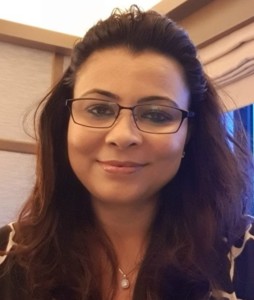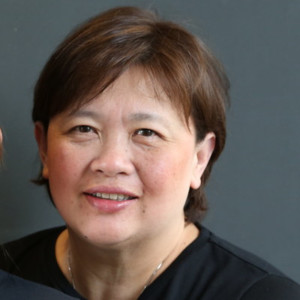Unlocking ADHD writer Jnanee Krishnasamy shares about her ADHD journey and how it feels to have a late diagnosis after struggling for so many years.
I am a professional adult woman who was diagnosed with Attention Deficit/Hyperactivity Disorder (ADHD) in my late twenties. When I was first diagnosed, I was hugely relieved. I’d always known that I was different, but I could finally put a name to it.
The relief was short-lived and quickly extinguished by a sense of loss. I grieved for the years that I went undiagnosed.
My mother tells me that many years ago, I was a quiet little girl. What if I had been a hyperactive, screaming little boy? I would have stood a higher chance of being promptly and accurately diagnosed.
Diagnostic Criteria for ADHD
The American Psychiatric Association (APA) first recognised ADHD as a psychological condition in the 1960s.
Studies show that about 5% of the general population have ADHD. According to the Center for Disease Control and Prevention (CDC), boys are three times as likely to be diagnosed as girls. However, girls are just as susceptible to ADHD as boys. Girls are more prone to the ‘inattentive’ subtype of ADHD, whereas boys are more prone to the ‘hyperactive’ subtype of ADHD. Hyperactive behaviour was more disruptive, and thus more likely to be referred to psychiatric clinics.
As a result, early research and diagnostic criteria were heavily focused on hyperactive young boys. It was not until the mid-1990s that various subtypes of ADHD were diagnosed. In the nineties, psychiatrists also realised that ADHD is not a childhood-only condition, and persists well into adulthood.
The implication is that there were countless girls and women who suffered from ADHD, needed help yet never received it.
Masked and Missed Symptoms
Primary school was a breeze for me. I got into a top secondary school with ease. However, in hindsight, I was propped up by my mother’s organisational skills. My mother – a decidedly non-ADHD individual – juggled her career, domestic chores and child rearing duties with ease. She sat down with me, ensured I understood my schoolwork and made sure that I submitted my homework on time.
There were subtle signs – I frequently lost my belongings, and occasionally forgot about homework assignments. I got into plenty of fights with boys, and was hauled to the disciplinary office on many occasions (unusually frequent for a girl!). During exams, I answered some questions without reading them entirely. However, my academic record was otherwise unblemished.
Once I reached secondary school, my mother reasonably decided that I was old and bright enough to manage and organise my schoolwork. This was when I fell apart.
I tried my best. Despite this, assignments were rarely handed in, belongings were frequently lost, and study attempts were abandoned within 15 minutes (in favour of playing video games).
I also loved to be on the go, and my parents obliged. At one point, I had three different CCAs (co-curricular activities) as well as violin classes, piano classes and yoga classes! (The hobby classes were abandoned within a couple of years).
I barely scraped through each year. “She’s clearly bright and she works really hard, but her results don’t indicate these traits,” a few teachers remarked to my mother.
Overlooked, Dismissed, Misdiagnosed
When I was 16, I asked my mother to take me to a psychiatrist to get tested for ADHD.
“You can’t have ADHD,” the good doctor remarked dismissively as soon as he learned the name of my secondary school. “You’re from a good school. You’re probably just stressed.”
This sentiment was echoed by a couple of other doctors, and I eventually believed them.
Confounding Comorbidities
A 2017 study reported that adults with ADHD are three times more likely to develop major depressive disorder (MDD), six times more likely to develop dysthymia (persistent depressive disorder), and four times more likely to have a mood disorder.
This is unsurprising. Undiagnosed ADHD folks are likely to experience repeated failure, frustration and anxiety about facing future failures.
My peers in junior college were accepting prestigious scholarships and jetting off to Oxbridge and Ivy League universities, while I was in limbo with my mediocre A-level results (I had failed my preliminary examinations and fully expected to retake my ‘A’ levels). At this point, my anxiety about the future was mounting.
I had to succeed.
By adulthood, most undiagnosed women develop a secondary mood disorder (e.g., depression, anxiety) that further masks the ADHD. I developed severe anxiety.
ADHD folks have a deficiency in adrenaline levels. My adrenaline levels surged because of my anxiety, and I subconsciously began to compensate for my underlying ADHD. I began to get the “A” grades that I hadn’t seen since primary school.
Of course, anxiety is a maladaptive mechanism. Maladaptive mechanisms spiral out of control.
Ask my university classmates about me, and they will tell you that I was a nervous wreck.
Everything Comes Crashing Down
Many undiagnosed women frequently visit psychiatrists when they are in crisis. A lost job, a divorce, a criminal charge – ‘rewards’ for being able to compensate until adulthood. These women have fought until they simply could not.
These women’s secondary psychiatric disorders (e.g., anxiety, depression) are easily picked up, but the underlying ADHD is frequently overlooked for several years – until it gets discovered either by chance, or by a psychiatrist who understands ADHD in adult women.
The Havoc of Undiagnosed ADHD
There are serious physical and mental health outcomes for women with undiagnosed ADHD. Undiagnosed women earn less than their peers and are less likely to have stable employment. They are also much more likely to become alcoholics, have unplanned pregnancies, and land in jail.
In a study, 23.5% of women with ADHD said they had attempted suicide compared to 3.3% of women without ADHD.
Hope
According to Clinical Partners UK, a whopping 50% to 75% of women with ADHD go undiagnosed.
I once expressed my outrage over my delayed diagnosis to a counsellor, on a hot and humid Monday afternoon.
“As we speak, there are many undiagnosed teenage girls who’re dreaming away in Singapore’s classrooms,” he responded wryly.
“Maybe you can help me reach out to them someday,” he added.
Action
Completing this article is an achievement. It is a baby step in raising awareness of ADHD in women. One step closer to those dreaming teenage girls in Singapore’s classrooms. A scary step, but one that I must take.
[If you liked this story and found it helpful, please SHARE it. For more personal stories about ADHDers, please click here.]




















































Great effort indeed.! Please continue to write.
thank you for your encouragement, Marty. Appreciate it
Hi! Thanks for sharing your experiences. Being dismissed by doctors can be rather discouraging.. could you share how you managed to get a diagnosis despite the previous experiences you had where the doctors were dismissive, and how you chose a healthcare provider for your condition? Also, is there a point in getting a diagnosis where the symptoms are not severe since it looks like even getting a diagnosis requires so much effort?
Hello! Thank you for reaching out. I got diagnosed at a private psychiatrist. What I found was that doctors would cut me off while I tried to describe my symptoms, so I typed out all my symptoms on a piece of paper and passed it to the psychiatrist to read. I was aware that there are working adults who fake ADHD symptoms in order to get access to medication. and that doctors were wary of this. This is why I brought my mother along to my appointments to give me more credibility. She is my nearest and dearest, and she was certain that I fit the definition of ADHD. This is a lady who normally hates the idea of labelling and medicating her children!
As for the importance of a diagnosis, it’s crucial to have access to any strategies (including medication) that can improve your quality of life. Unmanaged ADHD can affect every area of your life, including your career. I created some Carousel posts on the impact of untreated ADHD on one’s career. You can check it out on Unlocking ADHD’s Instagram at : https://www.instagram.com/p/CVI-LOQKm9I/
I hope this helps!